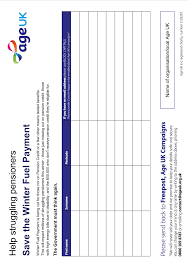Understanding the Winter Fuel Payment in 2023

Introduction
The Winter Fuel Payment is a crucial financial support scheme designed to assist older individuals in the UK with their heating costs during the cold months. As the temperatures plummet, the importance of this payment becomes increasingly evident, especially for those living on limited incomes. With rising energy costs, the financial aid provided by the government helps ensure that vulnerable populations are able to keep their homes warm and safe throughout winter.
Eligibility and Payment Details
In 2023, the Winter Fuel Payment will benefit individuals born on or before September 25, 1956. Eligible recipients may receive a one-off tax-free payment ranging from £250 to £600, depending on individual circumstances. The specific amount depends on the person’s age, whether they live alone or with someone under 80, as well as their home circumstances. It’s important to note that those who have been residing in a care home for more than 12 weeks may not qualify for the payment.
Application Process
Most people will receive the Winter Fuel Payment automatically if they have previously qualified in the past years. However, new applicants must register to apply for the first time. The application process can be initiated online through the official government website, or by completing a paper form. It’s vital to apply before the deadline of March 31, 2024, to be eligible for this year’s payment. The government encourages all eligible individuals to ensure their claims are submitted on time, as financial assistance during winter months can significantly ease the burden on household budgets.
Current Energy Crisis and Significance
The context of current economic challenges, including rising energy prices, highlights the significance of the Winter Fuel Payment. Recent reports indicate that energy prices have surged, putting additional financial strain on elderly households. In a recent survey conducted by the Office for National Statistics, almost one in four older adults reported cutting back on essentials to pay their heating bills. This further underlines the necessity and urgency for the government to maintain such financial support programs.
Conclusion
The Winter Fuel Payment remains a vital resource for many older adults across the UK, ensuring that they do not have to choose between heating and other essential needs. As the country grapples with heating crises exacerbated by rising costs, understanding the benefits, eligibility, and application process for the Winter Fuel Payment is imperative. Going forward, continuous support and potential adjustments to these payments will be critical in meeting the needs of vulnerable populations during the winter months.









